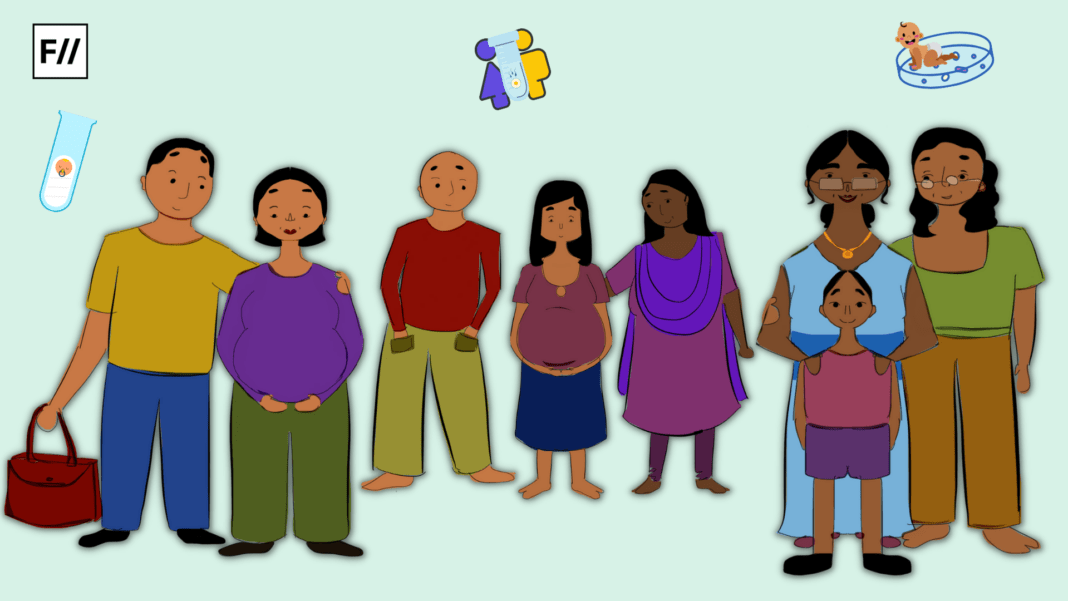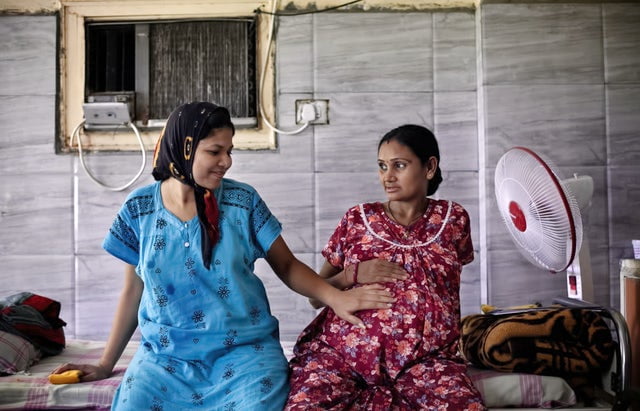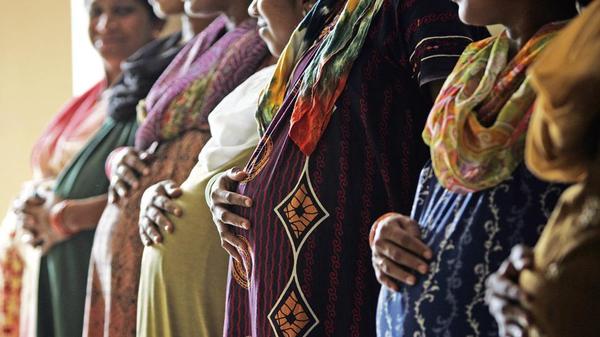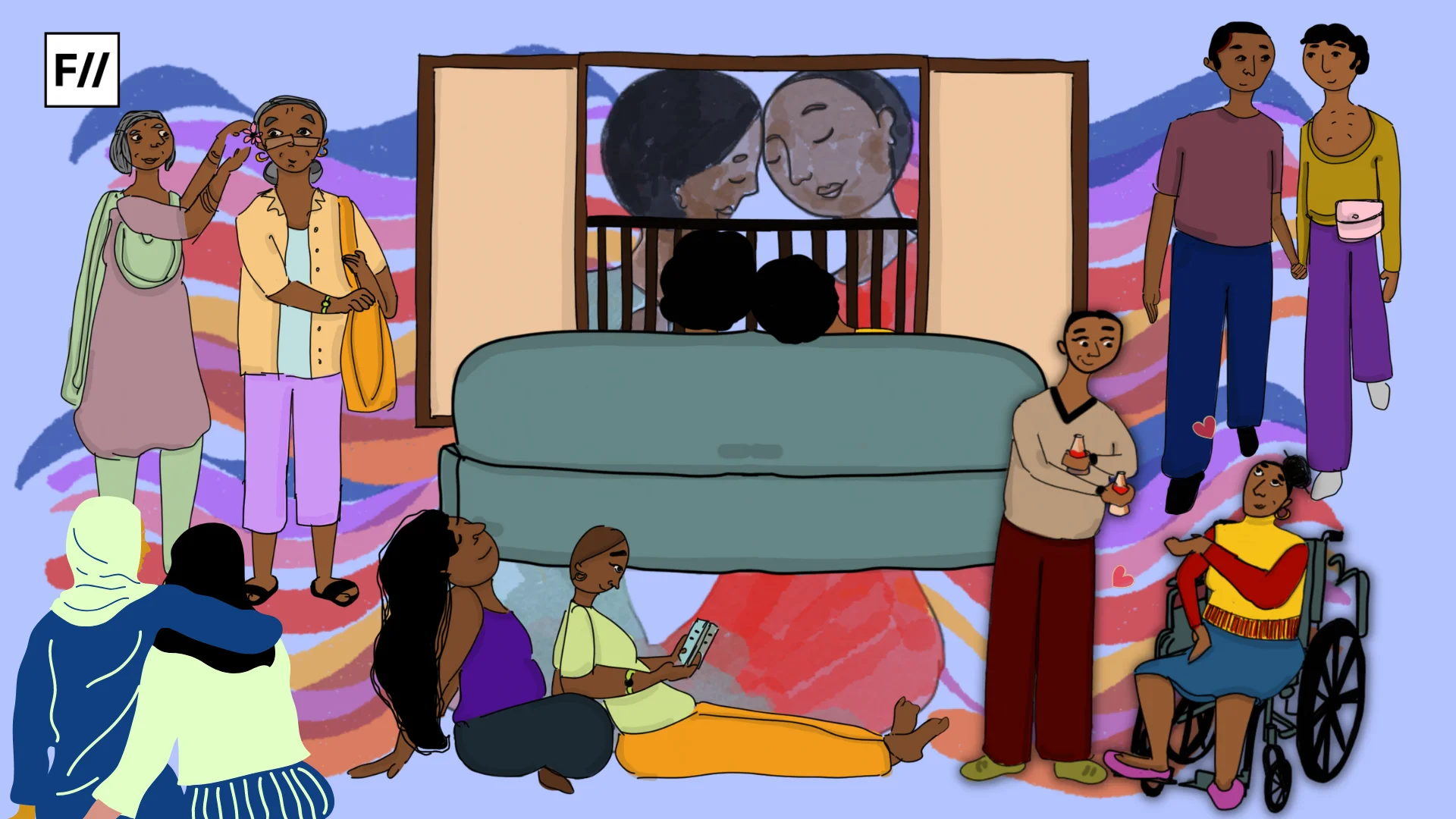The Indian government’s recent announcement of an update to the 2022 surrogacy regulations on Wednesday, February 23, has sparked optimism among numerous married couples grappling with fertility issues. This amendment allows married couples the option to use donor eggs or sperm if one partner is medically unable to conceive naturally. However, as per the updated Surrogacy (Regulation) Rules, 2022, the District Medical Board is required to confirm that either the husband or wife is experiencing a medical condition that mandates the utilisation of donor gametes.
The Indian government’s recent announcement of an update to the 2022 surrogacy regulations on Wednesday, February 23, has sparked optimism among numerous married couples grappling with fertility issues.
This policy shift not only reflects the government’s adaptable stance on this issue but also signifies a broader, more inclusive approach to addressing the complex fertility challenges faced by countless couples nationwide. By offering this new avenue for achieving parenthood, the amendment demonstrates an evolving understanding and support for individuals yearning to start a family, representing a significant milestone in the country’s journey toward more compassionate healthcare and social policies.
Understanding the updated surrogacy rule
According to a report by news agency PTI, the notification states, ‘Surrogacy using donor gamete is allowed subject to the condition that the child to be born through surrogacy must have at least one gamete from the intending couple.’ This implies that couples cannot pursue surrogacy if both partners have medical conditions preventing them from providing their gametes.
‘In case when the District Medical Board certifies that either husband or wife constituting the intending couple suffers from a medical condition necessitating use of donor gamete, then surrogacy using donor gamete is allowed,’ news agency PTI reported citing the notification.
‘Surrogacy using donor gamete is allowed subject to the condition that the child to be born through surrogacy must have at least one gamete from the intending couple’, the notification added further.
This implies that a couple cannot opt for surrogacy if both partners have medical problems or are unable to have their gametes.
For single women in India
According to the notification, it specifies that single women, whether widowed or divorced, who are undergoing such procedures, are required to use their eggs along with donor sperm to avail themselves of the services. This means that in cases where a single woman seeks to become a parent through such processes, she must contribute her eggs for fertilisation while relying on donor sperm to facilitate the conception process. This condition underscores the importance of using the woman’s genetic material in the process while allowing for the use of donor sperm to enable fertilisation.
What earlier surrogacy rules said
In recent years, the landscape of surrogacy regulations in India has undergone significant scrutiny and revision. Previously, India’s surrogacy regulations required intending couples to contribute both sperm and egg for the procedure, aiming to ensure a genetic connection between the child and at least one of the commissioning parents. This stipulation aimed to ensure a genetic connection between the child and at least one of the commissioning parents.
However, this requirement faced reevaluation following legal challenges, particularly after the Supreme Court received petitions from women across the country.
These petitions gained traction when the court permitted a woman with a rare congenital disorder to undergo surrogacy with a donor egg, prompting a critical review of existing regulations.
In response to evolving societal needs and legal considerations, the Ministry of Health and Family Welfare amended the rules, relaxing the requirement for couples to provide both gametes. This amendment, which came into effect after a notification issued by the Centre in March 2023, marked a significant departure from the previous stance on donor gametes in surrogacy arrangements.
Specifically, the amendment to Rule 7 on surrogacy addressed the ‘Consent of the Surrogate Mother and Agreement for Surrogacy,’ particularly concerning the fertilisation of donor oocytes by the husband’s sperm. This change opened up possibilities for couples to utilise donor gametes in surrogacy arrangements, thereby expanding options for prospective parents facing infertility challenges.
Following the amendment, several pleas were filed in the Supreme Court challenging the changes made to Rule 7.
However, this shift was not without controversy. Following the amendment, several pleas were filed in the Supreme Court challenging the changes made to Rule 7. Critics raised concerns about the implications of allowing donor gametes in surrogacy arrangements, citing ethical, legal, and social considerations.
In December of the same year, the Supreme Court questioned the rationale behind the previous rules, emphasising that overly restrictive regulations could undermine the very purpose of surrogacy. In a landmark decision, the court permitted more than two dozen petitioners to use donor eggs in surrogacy arrangements, affirming the evolving landscape of reproductive rights and assisted reproductive technologies in India.
Overall, the review and amendment of earlier surrogacy rules reflect a dynamic interplay between medical advancements, legal considerations, and societal norms. Despite ongoing discussions and debates, these changes signify a step toward more compassionate and supportive reproductive healthcare policies in India.
The taboo attached to surrogacy in India
In India, surrogacy carries a complex web of taboos, deeply entangled with the country’s rich tapestry of cultural, religious, and social norms. At the heart of these taboos lies the traditional belief system that venerates the biological process of procreation within the sanctity of marriage. Surrogacy, by introducing a third party into this intimate equation, disrupts conventional familial structures and challenges deeply held societal norms about motherhood, kinship, and the sanctity of the biological link between a mother and her child. This divergence from tradition often subjects surrogate mothers and intended parents alike to societal scrutiny and stigma, overshadowing the altruistic and hopeful aspects of surrogacy with layers of moral and ethical ambiguity.
Moreover, the ethical concerns surrounding the potential exploitation of surrogate mothers—many of whom come from economically vulnerable backgrounds—add another layer of taboo. The fear is that surrogacy commercialises and commodifies women’s bodies, reducing a deeply personal and emotional experience to a financial transaction. Such perspectives are compounded by the legal landscape in India, which has seen significant shifts in recent years aimed at regulating and restricting surrogacy practices to prevent exploitation and ensure ethical standards.
Despite these legal frameworks, the societal perception of surrogacy remains fraught with misconceptions and a lack of comprehensive understanding of the motives and mechanisms underlying surrogacy arrangements. This gap in understanding further entrenches the taboo, making it a topic shrouded in controversy and silence, rather than one of informed discussion and empathy.
A closer look at the benefits of this regulations
India’s new surrogacy rules signify a major shift in how the country approaches assisted reproduction. These regulations aim to modernise and simplify the surrogacy process, offering several benefits for individuals and couples seeking to start families through surrogacy.
These regulations aim to modernise and simplify the surrogacy process, offering several benefits for individuals and couples seeking to start families through surrogacy.
One significant advantage of the updated rules is the widened access to surrogacy services. Previously restricted to married couples, the revised regulations now extend to single women, including widows or divorcees. This inclusive approach acknowledges diverse circumstances, enabling more individuals to explore surrogacy as a path to parenthood.
Moreover, the amended rules allow for greater flexibility in using donor gametes, such as eggs or sperm, in specific situations. Couples facing infertility due to medical conditions now have the option to incorporate donor gametes, increasing their chances of successful pregnancies. This provision provides hope and options for those previously limited in their fertility journey.
Additionally, the requirement for certification from the District Medical Board ensures medical oversight, safeguarding the health of all involved parties, including surrogate mothers, intended parents, and children born through surrogacy.
Furthermore, clear guidelines and transparency in the surrogacy process streamline navigation for individuals and couples. Enhanced understanding of rights, responsibilities, and procedural steps minimises uncertainty, facilitating smoother surrogacy arrangements.
Moreover, the recognition of single women as eligible candidates for surrogacy provides much-needed support and acknowledgement for individuals pursuing parenthood on their own. By including single women in the surrogacy regulations, the government acknowledges the diverse pathways to parenthood and aims to create a more supportive and inclusive environment for all individuals seeking assisted reproduction services.
Overall, the new surrogacy rules in India offer a range of benefits and perks, including expanded access, flexibility in gamete use, medical oversight, clarity, and social support. These regulations represent a step forward in modernising and improving the surrogacy process, providing hope and options for individuals and couples embarking on their journey to parenthood through surrogacy.










But the hurdle of getting willing women withing family and relatives
for carrying the fetus remains still there!